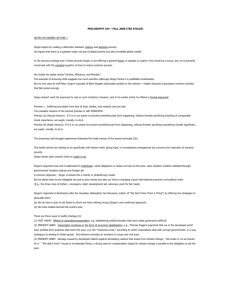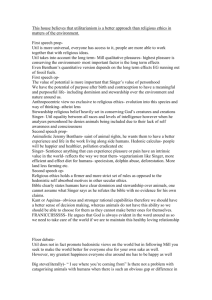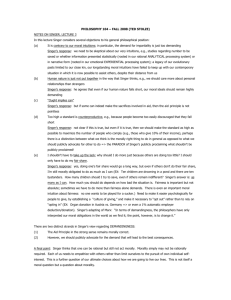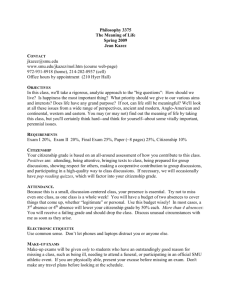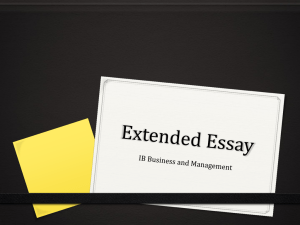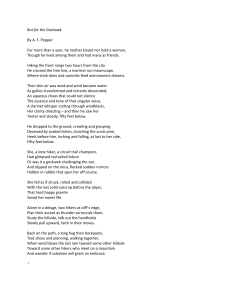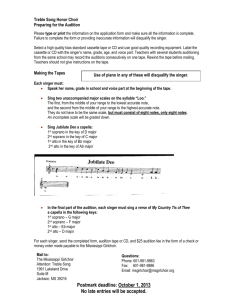Name Date Period ____ Vocabulary Set 3 EXERCISE 1: Definitions
advertisement
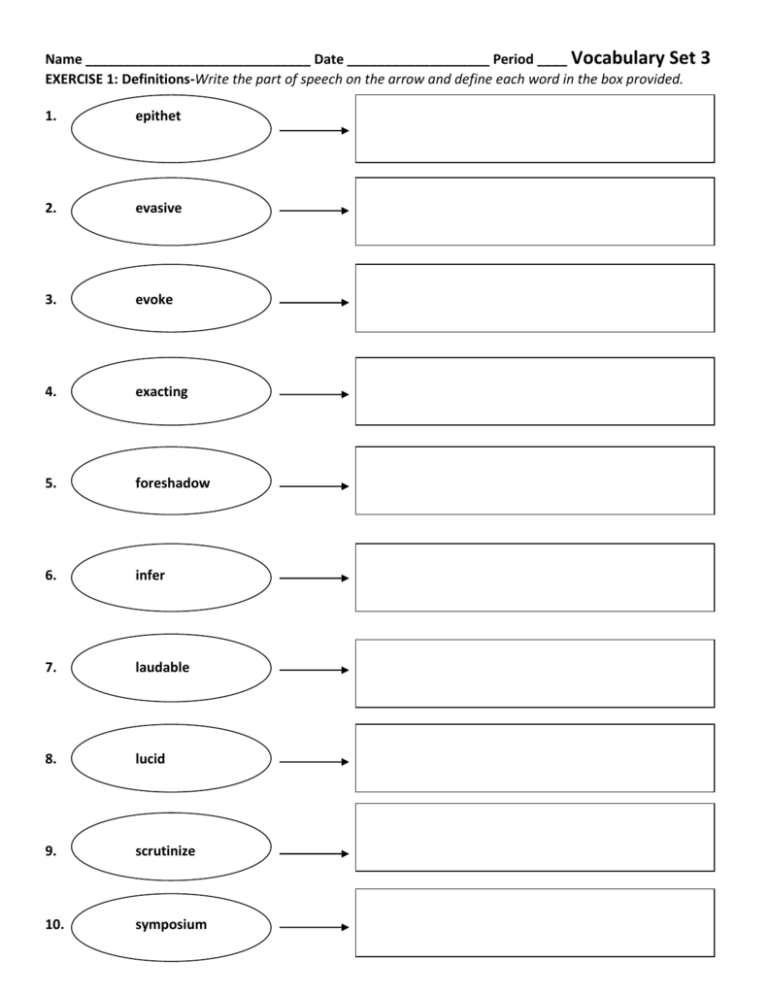
Name ______________________________ Date ___________________ Period ____ Vocabulary Set EXERCISE 1: Definitions-Write the part of speech on the arrow and define each word in the box provided. 1. epithet 2. evasive 3. evoke 4. exacting 5. foreshadow 6. infer 7. laudable 8. lucid 9. scrutinize 10. symposium 3 EXERCISE 2: Context Clues Directions: Scan the definitions in COLUMN A. Then think about how the boldface words are used in the sentences in COLUMN B. To complete the exercise, match each definition in COLUMN A with the correct vocabulary word from COLUMN B. Write the letter of your choice on the line provided; then write the vocabulary word on the line preceding the definition. COLUMN A COLUMN B _____11. word: ______________________: n. a meeting for discussing a particular subject; a collection of writings on a subject (A) Have you ever known someone who was a fatalist? That epithet aptly describes the main character in Singer’s story “The Fatalist.” _____12. word: ______________________: v. to indicate or suggest beforehand; to give warning of (B) Fatalism is the belief that everything is determined by fate or destiny. Thus you can infer from the story’s title that Singer’s character doesn’t believe in chance. _____13. word: ______________________: v. to examine closely or critically (C) Benjamin, the fatalist, discusses his strange beliefs at a symposium held by a group of young scholars. _____14. word: ______________________: adj. avoiding by cleverness; not straightforward; misleading (D) Benjamin’s philosophy is so lucid that it begins to make sense to some of the villagers. _____15. word: ______________________: v. to concluded the basis of reasoning or observation (E) Benjamin’s comments about fate foreshadow the clever plot twists in the story. Even so, the events are sure to surprise you. _____16. word: ______________________: adj. easily understood; clear; rational and sane (F) The fatalist’s beliefs evoke scorn in Heyele, the young woman he wants to marry. She doesn’t hide her feelings, but he proposes to her anyway. _____17. word: ______________________: adj. hard to please; requiring hard work and close attention; demanding (G) The woman has very exacting standards, and Benjamin clearly doesn’t live up to them. _____18. word: ______________________: v. to call forth; to bring out; to elicit; to produce (a reaction) (H) Benjamin proposes an extraordinary bet to test whether their marriage is fated. After scrutinizing his offer carefully, looking for any possible tricks, Heyele accepts the wager. _____19. word: ______________________: n. a word or phrase that describes or characterizes a person or thing; a descriptive name (I) The bet is this: Benjamin will lie in front of an oncoming train, and if it doesn’t hit him, Heyele has to marry him. The villagers find his courage laudable, but they can’t believe he’d do something so foolish. _____20. word: ______________________: adj. praiseworthy; commendable (J) Does Benjamin win the bet? I don’t mean to be evasive, but you will have to read the story to find out! Exercise 3: Synonyms/Antonyms Word Synonyms (1) Antonyms (1) EXERCISE 4: Sentence Completion Directions: For each of the following items, circle the letter choice that best completes the meaning of the sentence or sentences. 21. What an honor! You’ve been asked to speak at a national _________ on the work of Isaac Bashevis Singer. (A) epithet (B) foreshadowing (C) symposium (D) scrutiny (E) evasion 22. After carefully _________ a few of singer’s stories, you can probably _________ the general themes in Singer’s work. (A) foreshadowing . . . scrutinize (B) scrutinizing . . . infer (C) evoking . . . laud (D) evading . . . infer (E) evasive . . . laudable 23. Your listeners will be _________ scholars, so you have to be sure that your ideas are _________ and clear. (A) exacting . . . lucid (B) laudable . . . exacting (C) lucid . . . evasive (D) exacting . . . evocative (E) evasive . . . laudable 24. You decide to talk about how Singer _________ his readers’ emotional responses through his retelling of personal memories. (A) foreshadows (B) evokes (C) infers (D) scrutinizes (E) exacts 25. In preparation for your talk, you _________ the story “The Washwoman,” paying careful attention to all the characters and details that _________ the outcome of the story. (A) evade . . . evoke (B) foreshadow . . . scrutinize (C) evoke . . . infer (D) scrutinize . . . foreshadow (E) infer . . . evade 26. The story tells about one of the few gentiles, or nonJewish people, whom Singers family had contact with. Singer just calls her the washwoman, an appropriate _________ since her work was her whole life. (A) evasion (B) symposium (C) lucidity (D) inference (E) epithet 27. The washwoman’s work was so _________ that even Singer’s _________ mother praised her. (A) exacting . . . evaded (B) laudable . . . exacting (C) lucid . . . laudable (D) evasive . . . exacting (E) foreshadowed . . . evocative 28. In a _________, straightforward narrative, Singer describes how the woman walked an hour and a half each way to pick up and drop off the laundry. (A) evasive (B) laudable (C) foreshadowed (D) evocative (E) lucid 29. His description early in the story of the old woman’s frailty _________ the day when she is too sick to bring the wash. (A) foreshadows (B) scrutinizes (C) evokes (D) infers (E) exacts 30. When the woman struggles from her sick bed for the last time to bring her customers their laundry, Singer is not _________ about the impression she made on him. He says clearly that he cannot imagine such a person being turned away from paradise. (A) exacting (B) lucid (C) laudable (D) evasive (E) evocative

